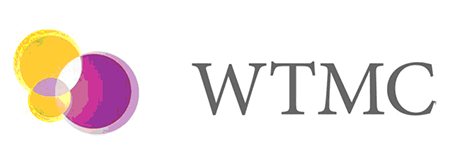Dutch STIS Celebrates 25 Years 
WTMC celebrates 25 years in 2012. Many readers of EASST Review will have come across this abbreviation. It’s much easier to say in its native Dutch, and for speakers of more Germanic languages, it is immediately obvious that it must have something to do with STIS. The official English name is the Netherlands Graduate Research School for Science, Technology and Modern Culture.
When working in England in the late 1980s and throughout the 1990s, I can remember seeing the announcements for the WTMC summer schools, and looking at them with longing, wishing I could attend what always promised to be amazing events. The summer schools feature one of the big names (what WTMC calls ‘anchor teachers’) from the field, combining lectures, reading, and skills training. The list of anchor teachers is a veritable ´who´s who´ of the field. And now we do regularly welcome participants from other countries.
WTMC has four major objectives:
- to provide high quality, advanced training for PhD candidates who study science, technology and modern culture, and thus to create new generations of scholars with a solid background in this interdisciplinary field
- to stimulate and coordinate high quality research about science, technology and modern culture
- to contribute to societal debates about the role of science and technology in society
- to promote the visibility of STS as a field amongst research funding agencies, universities and others concerned with research and education policy
Dutch STIS has always been very vibrant, and is, per capita, probably the largest STIS community in the world. Part of this vibrancy is due to WTMC. In addition to PhD training, we provide a focal point for STIS research and activities, building up a large community of researchers and practitioners.
Combining training with research has always been the cornerstone of WTMC. The workshops and summer schools are not only for the benefit of PhD participants, but are also a venue for more senior scholars to share and develop their ideas. People are always keen to accept our invitations to contribute, knowing they will be facing a keen audience for their work. The relatively small scale of the Netherlands and the way in which university education is organised make it possible for Dutch universities to work together via WTMC to offer high-quality training to PhD students from all different Dutch universities.
WTMC started as a more informal network in 1986, and the first summer school was held in 1987. The model of workshops, summer and winter schools has been adapted (but not much) over the years. The basis was laid by the founders – Wiebe Bijker, Rob Hagendijk, Arie Rip, Gerard de Vries and the late Peter Boskma. The training provided by WTMC has been formally accredited by the Royal Netherlands Academy of Arts and Sciences on four occasions, most recently in 2011, so we’re set to continue for some time yet.
To mark this significant anniversary, WTMC hosted a lunch at the recent EASST/4S conference in Copenhagen to which we invited all former anchor teachers (pictures on our website). Colleagues from our sister organisations in Italy, Belgium, Taiwan, as well as the EASST President and student representative shared some thoughts about what national organisations such as WTMC can mean for the field.
WTMC organises an annual meeting for all members, usually held towards the end of the year (13-14 December 2012 in Amsterdam). We discuss new books and projects as well as important developments in the field. This year, each of the founders has teamed up with a current PhD to prepare a presentation, and we will have a science fiction monster party. As Helga Nowotny said in replying to the invitation to the Copenhagen lunch, ‘congratulations for past achievements, present success and future ambitions. Have a wonderful celebration and a good time (badly needed these days)’. WTMC does have a lot to celebrate, though of course we cannot remain complacent, neither about the role of the kind of research done by members nor about the role of universities more generally in contemporary society.
More details about past and future WTMC activities can be found on the newly revamped website – www.wtmc.net.